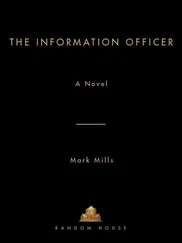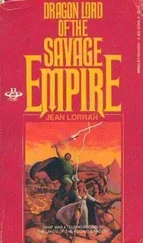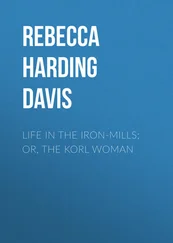Mark Mills - The Savage Garden
Здесь есть возможность читать онлайн «Mark Mills - The Savage Garden» — ознакомительный отрывок электронной книги совершенно бесплатно, а после прочтения отрывка купить полную версию. В некоторых случаях можно слушать аудио, скачать через торрент в формате fb2 и присутствует краткое содержание. Жанр: Старинная литература, на английском языке. Описание произведения, (предисловие) а так же отзывы посетителей доступны на портале библиотеки ЛибКат.
- Название:The Savage Garden
- Автор:
- Жанр:
- Год:неизвестен
- ISBN:нет данных
- Рейтинг книги:4 / 5. Голосов: 1
-
Избранное:Добавить в избранное
- Отзывы:
-
Ваша оценка:
- 80
- 1
- 2
- 3
- 4
- 5
The Savage Garden: краткое содержание, описание и аннотация
Предлагаем к чтению аннотацию, описание, краткое содержание или предисловие (зависит от того, что написал сам автор книги «The Savage Garden»). Если вы не нашли необходимую информацию о книге — напишите в комментариях, мы постараемся отыскать её.
The Savage Garden — читать онлайн ознакомительный отрывок
Ниже представлен текст книги, разбитый по страницам. Система сохранения места последней прочитанной страницы, позволяет с удобством читать онлайн бесплатно книгу «The Savage Garden», без необходимости каждый раз заново искать на чём Вы остановились. Поставьте закладку, и сможете в любой момент перейти на страницу, на которой закончили чтение.
Интервал:
Закладка:
There was only one problem.
After a few months on Borneo, her father had identified only one type of orangutan—the mayas tjaping, big and square-headed. Some had fatty cheek-expansions, while others didn't, but this distinction seemed to be no more than a feature of age in the male of the species. It was looking increasingly likely that the sound logic was based on unsound evidence. There was only one way to tell.
It was on their trip to Sumatra that her father almost lost his mind, and on a couple of occasions his life (Dutch authority in the northern province of Aceh extending no further than the range of their guns from a handful of forts). During his time there, he shot, skinned and prepared the skeletons of more than fifteen orangutans. They, too, were all of one type—a different type, smaller than the mayas tjaping, with narrower faces and hair of a paler hue than their Bornean cousins. For that was what they clearly were: cousins, and several times removed.
Her father must have recognized the deep irony of his predicament, but he refused to accept it. Only after they had all returned to Borneo, and after another spate of slaughter, was he forced to concede the inevitable: the findings of his fellow naturalists who had visited the Malay archipelago before him were flawed, and by following in their footsteps he had not only failed in his mission to challenge Darwinian thinking, he had actually lent weight to it.
There were indeed two types of orangutan, but one type inhabited Borneo, the other Sumatra. Geographically divided, the species had adapted itself according to the demands of two different environments. And there was no reason whatsoever to assume that this wasn't an ongoing situation.
His only consolation came from his wife. Signora Docci's long- suffering mother tried to make him see that he had made an important contribution to the sum of zoological knowledge. He might even have identified a new subspecies of primate. There was certainly a strong case to be made for this. Most in his position would have leapt at the chance of laying claim to a part of the Tree of Life, even if it was just one small bifurcation at the end of a branch.
Not her father.
On their return to Italy, he resigned his post at the university, destroyed all his papers relating to the expedition and turned his attention to archaeology, immersing himself in the lost culture of the Etruscans. He kept only two mementoes of his time in the East Indies, but strangely they were the most significant reminders of his failure—the orangutan skulls in the study cabinet, manifestly different: one Bornean, the other Sumatran.
Adam had barely spoken a word during Signora Docci's account of her childhood adventure, more than content to be carried along by her colorful tales and the soft, measured tones of her voice. When she, too, fell silent, his power of speech did not return.
Signora Docci gave an apologetic smile. "I'm sorry. I have bored you.
"No. You haven't. It's interesting."
"The reminiscences of an old lady? I doubt it."
"Really. It must have been a fascinating time, man struggling to come to terms with who he really was . . . is."
"Oh, I doubt we ever will." She took a sip of wine. "Men like my father went in search of Eden, but they found a far more savage garden."
Adam hesitated, uncertain about raising the subject. "The scar on Antonella's forehead . . ."
Signora Docci smiled. "I should have known you'd see it. The crest on the skull from Borneo . . ."
"Yes."
"Who knows? I'm not superstitious, but maybe it is punishment for what he did to those poor creatures. It was a massacre. And after they were dead, he desecrated their bodies." She glanced off into the night, then up at the pale sickle blade of a moon. "Or maybe it was my punishment—for failing to stop him."
"You were too young."
"Don't underestimate the power of a daughter over her father." She paused, pensive. "I knew some of them—quite well in fact, and I stood by and watched. There was one . . . near Marop ... a female, a mother. I called her Sabinetta. She used to break off branches and throw them at us every time we went near. When they finally shot her, she wedged herself in the fork of a durian tree and men had to go up to bring her down." She gave a small smile. "They didn't go, not at first, they thought she was pretending. They do, you know. And they're strong, very strong. There are lots of stories, stories with pythons, crocodiles . . ."
She leaned forward, her eyes gleaming in the candlelight, and Adam caught a brief glimpse of her as a young girl bent forward over a campfire, hanging on every word of the stories as they'd been told to her.
"Nothing in the forest is as strong, that's what the Dayaks say. Maybe they are right, I don't know. But I have seen an orang snap off a branch as thick as your arm like that—"
She twisted her clenched fist in the air. Bony fingers unfolded from the fist, reaching for the bottle of red wine. Adam beat her to it. He was filling her glass when Maria appeared silently from the gloom beyond the candlelight.
She said something to Signora Docci. The words came too fast for Adam to understand, but it sounded like a reprimand. She shot him a withering look as she retired with their plates.
"She's right," said Signora Docci. "It is late and I have had a long day."
Adam rose to help her from her chair.
"Thank you," she said, leaning on her new cane with its death's- head pommel. "It is strange that you asked about the skulls."
"Why?"
"Because I went to see her today—Sabinetta. She is in the Zoological Museum in Florence."
Adam offered to accompany her upstairs to her room. "Stay," she insisted, "finish the wine. Maybe Maria will make you a coffee if you ask her nicely . . . although somehow I doubt it," she added with a smile. "Good night, Adam."
"Good night."
She took his hand and squeezed it. "It's a pleasure to have you here."
He watched her make her way uncertainly across the terrace. She stopped and turned before entering the drawing room.
"I said my father destroyed all his papers. He thought he had.
When I realized what he was going to do, I hid an album of photographs. If you're interested, it's in the cabinet under the shelves in the library, the ones near the study. The key is behind a copy of your Mr. Milton's Paradise Lost. "

Which is exactly where Adam found it twelve hours later, after his solitary Sunday morning breakfast on the terrace.
There were several photograph albums in the cabinet, but it stood out for its superior age, its tooled leather binding scuffed and cracked. The photos inside also betrayed their age, moments in time trapped in washed-out sepia tones. Many were blurred, the faces shrouded in ghostly veils where the subjects had moved. This was almost always the case with Signora Docci's father—a sign perhaps of the impatience she had hinted at over dinner the night before. She, on the other hand—in her pinafore dress, bonnet and lace-up boots, already tall for her tender years—had obviously taken the photographer's instructions to heart. In every shot she stood as rigid as a marionette, her arms hanging limp at her sides. He recognized her immediately from the penetrating gaze of the wide-spaced eyes fixed directly on the camera lens.
The photographs were arranged chronologically, beginning with the boat trip over. In one, a rangy, fair-headed young man in a dark suit and a high collar was standing proudly on the deck beside a louvered cabinet raised on legs. This could only have been Walter F. Peploe, the Scottish meteorologist destined for a watery grave, and it occurred to Adam that there must be a whole other family out there somewhere who would cherish the photograph far more than the Doccis ever had.
Читать дальшеИнтервал:
Закладка:
Похожие книги на «The Savage Garden»
Представляем Вашему вниманию похожие книги на «The Savage Garden» списком для выбора. Мы отобрали схожую по названию и смыслу литературу в надежде предоставить читателям больше вариантов отыскать новые, интересные, ещё непрочитанные произведения.
Обсуждение, отзывы о книге «The Savage Garden» и просто собственные мнения читателей. Оставьте ваши комментарии, напишите, что Вы думаете о произведении, его смысле или главных героях. Укажите что конкретно понравилось, а что нет, и почему Вы так считаете.











